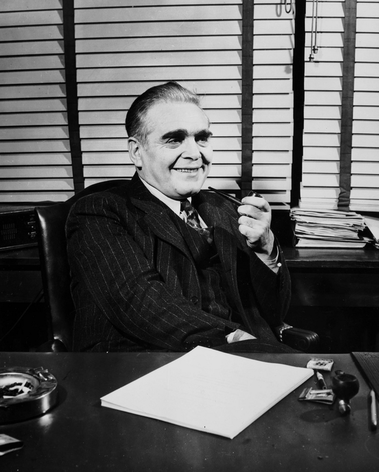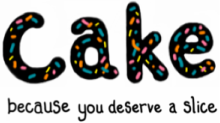 Julius looked at Dutiful Blogger and said, "Bad habits
Julius looked at Dutiful Blogger and said, "Bad habitsare good, eh? I think I like where this is going."
Vice is wonderful.
If you Google "what makes a good entrepreneur" you'll see all sorts of results championing those indefatigable qualities like perseverance, passion, budgeting, planning, and customer focus. These are more or less the qualities we all think of when someone says the "American Dream." People aren't born with them, though. Ok, so, then what are they born with?
Like pretty much every teenager, my parents and I had an inverse relationship with Character Building Activities during my teenage years: the higher they valued the opportunity to strengthen my character the lower I valued the activity. In fact, I would argue that approximately 98% of young male do-gooders who perform charity work or volunteer are hoping to meet women. Women are likely well attuned to this, but the young male is self-assured in his cleverness--women probably only like men because we're cute, like a really, really, really dumb puppy with a bag stuck on its head.
Nevertheless, I was generally all right as a teenager, though I got into more trouble than my parents would have liked, I'm sure. I got my first job when I was 12 helping a contractor clean up shingles as he was stripping them off our roof (he never paid me--if you're reading this, Contractor Guy, I'd love to introduce to my new friend, Mr. Knuckles). My first paying jobs were mowing yards and working as a busboy at a pizza buffet. I've also worked as a machine operator at a graphic design/embroidery shop, a library staff assistance, street canvasser, 3rd shift hostel worker, waiter, bartender, tutor, and a customer service representative. I was fired or "dishonorably discharged" from several of these positions, mostly for my #1 vice: insubordination.
If you Google "what makes a good entrepreneur" you'll see all sorts of results championing those indefatigable qualities like perseverance, passion, budgeting, planning, and customer focus. These are more or less the qualities we all think of when someone says the "American Dream." People aren't born with them, though. Ok, so, then what are they born with?
Like pretty much every teenager, my parents and I had an inverse relationship with Character Building Activities during my teenage years: the higher they valued the opportunity to strengthen my character the lower I valued the activity. In fact, I would argue that approximately 98% of young male do-gooders who perform charity work or volunteer are hoping to meet women. Women are likely well attuned to this, but the young male is self-assured in his cleverness--women probably only like men because we're cute, like a really, really, really dumb puppy with a bag stuck on its head.
Nevertheless, I was generally all right as a teenager, though I got into more trouble than my parents would have liked, I'm sure. I got my first job when I was 12 helping a contractor clean up shingles as he was stripping them off our roof (he never paid me--if you're reading this, Contractor Guy, I'd love to introduce to my new friend, Mr. Knuckles). My first paying jobs were mowing yards and working as a busboy at a pizza buffet. I've also worked as a machine operator at a graphic design/embroidery shop, a library staff assistance, street canvasser, 3rd shift hostel worker, waiter, bartender, tutor, and a customer service representative. I was fired or "dishonorably discharged" from several of these positions, mostly for my #1 vice: insubordination.
 Cops are so meta-Hipster
Cops are so meta-Hipster they protest your protest.
One of the best qualities you can have as an entrepreneur is a healthy distaste for authority figures, rules, and the status quo. At its most functional, insubordination is a function of boredom, frustration with inefficiency, and creativity. This is likely why it is such an abhorrent quality to have if you're working a low paying job, and correspondingly why so many liberal arts majors in dead end jobs are so listless: they've had their insubordination repeatedly shoved back down their throats. For entrepreneurs, though, insubordination is among the most useful keys to unlocking your success.
Whether or not they admit it, I think insubordination is a key characteristic of most highly creative entrepreneurs. World-class entrepreneurs like Steve Jobs or Richard Branson are driven by an insatiable desire to satisfy their own curiosities and passions. Unfortunately for them (and fortunately for the rest of us) their ridiculously high standards will mean they never have a life in a state of constant fulfillment. If they were living in a house with a picket fence, they would paint the fence a different shade of white 100 times a year and eventually turn into Jack Torrance.
Speaking of myself, and probably The Steve and Branson, insubordination leads me to another bad habit: arrogance. Out of all the bad habits, arrogance might be the most important. Arrogance leads you to resilience and the stupid naiveté that makes you believe that even though 85% of businesses fail within one year yours will somehow be different. Not only do you think your business will be different and not only do you think it'll be within the 15%, you think your business will be in the top 0.1% and that you'll become a millionaire. All it takes is hard work and dedication, right?
Whether or not they admit it, I think insubordination is a key characteristic of most highly creative entrepreneurs. World-class entrepreneurs like Steve Jobs or Richard Branson are driven by an insatiable desire to satisfy their own curiosities and passions. Unfortunately for them (and fortunately for the rest of us) their ridiculously high standards will mean they never have a life in a state of constant fulfillment. If they were living in a house with a picket fence, they would paint the fence a different shade of white 100 times a year and eventually turn into Jack Torrance.
Speaking of myself, and probably The Steve and Branson, insubordination leads me to another bad habit: arrogance. Out of all the bad habits, arrogance might be the most important. Arrogance leads you to resilience and the stupid naiveté that makes you believe that even though 85% of businesses fail within one year yours will somehow be different. Not only do you think your business will be different and not only do you think it'll be within the 15%, you think your business will be in the top 0.1% and that you'll become a millionaire. All it takes is hard work and dedication, right?
 Women love him and men want to be him.
Women love him and men want to be him.Heck, women want to be him
and men love him.
Professional Awesome Dude Philip Zimbardo rightly says that we're born present hedonists. Innovative entrepreneurs remain present hedonists, convinced that "The future is now and the future is me." While this often makes innovators intolerable to the lay person, insufferable esotericism is also the pathway to that unique blend of charisma good coffee, wine and leaders are made from. Our next bad habit that might make your startup world-changing is gambling.
If you're feeling all energized, I've got bad news. Your chances of winning at roulette or blackjack are higher than your chances of being a successful entrepreneur. Your startup costs will also be much lower since you can gamble with only a few dollars.
The difference between entrepreneurship and gambling is that entrepreneurs don't play based on their 53% chance of losing or their 47% chance of winning. Entrepreneurs play in that 6% difference, called the "house edge" in casinos, and aim to change the rules of the game so that they win more often than not. Gambling as an entrepreneur isn't about odds or likelihoods of hitting a 10 in blackjack or landing on red in roulette, it's about betting on your skills, work ethic, intelligence, moxie or some quality that you know you've got that no one else does. It's about betting that if you play long enough you won't just win more often than not--you'll win the whole casino.
Let's continue this celebration of the bad habits most effective entrepreneurs share.
What some call willingness to trust or team orientation I'll call pigheaded flightiness. Effective entrepreneurs are often way in over their heads, so by necessity they trust others. This contributes to the high risk nature of startups, but this volatility also leads to a culture of innovation. Going back to the resilience and naiveté that arrogance affords the entrepreneurial, pigheaded flightiness is best summarized by the entrepreneur's belief that she/he can do everything all the time for everyone who asks. Despite months and years of evidence to the contrary, this belief persists. Some of you reading this are going, "No, I have learned better." I'll wager that you haven't--you've just surrounded yourself with great, capable people who are also filled to the brim with pigheaded flightiness.
If you're feeling all energized, I've got bad news. Your chances of winning at roulette or blackjack are higher than your chances of being a successful entrepreneur. Your startup costs will also be much lower since you can gamble with only a few dollars.
The difference between entrepreneurship and gambling is that entrepreneurs don't play based on their 53% chance of losing or their 47% chance of winning. Entrepreneurs play in that 6% difference, called the "house edge" in casinos, and aim to change the rules of the game so that they win more often than not. Gambling as an entrepreneur isn't about odds or likelihoods of hitting a 10 in blackjack or landing on red in roulette, it's about betting on your skills, work ethic, intelligence, moxie or some quality that you know you've got that no one else does. It's about betting that if you play long enough you won't just win more often than not--you'll win the whole casino.
Let's continue this celebration of the bad habits most effective entrepreneurs share.
What some call willingness to trust or team orientation I'll call pigheaded flightiness. Effective entrepreneurs are often way in over their heads, so by necessity they trust others. This contributes to the high risk nature of startups, but this volatility also leads to a culture of innovation. Going back to the resilience and naiveté that arrogance affords the entrepreneurial, pigheaded flightiness is best summarized by the entrepreneur's belief that she/he can do everything all the time for everyone who asks. Despite months and years of evidence to the contrary, this belief persists. Some of you reading this are going, "No, I have learned better." I'll wager that you haven't--you've just surrounded yourself with great, capable people who are also filled to the brim with pigheaded flightiness.
 While you won't see it in Hollywood blockbusters,
While you won't see it in Hollywood blockbusters, young women were a major driver for the economy
during WWII. Wait, on second thought...why
don't we see movies about this?!
Workaholicism is the pessimist's synonym for passion. It's the same impulse that drives some of us to pursue extremely hot food while others wonder why we'd choose something "painful." In any case, a dedication to passion is a trait almost all high achievers share. It's also likely the cause of startups' reputation for long work hours at comparatively little pay--entrepreneurs assume all of their hires will be motivated by the same passions that they are. The entrepreneurs who are most fulfilled in their work are the ones who forget how long they've been working--incomprehensibly to nine-to-fivers, most would argue that they've been playing.
The last very bad quality of very good entrepreneurs that I'll talk about is intolerableness. Highly successful entrepreneurs are relentless and charming self-promoters. They're infuriatingly optimistic and seem simultaneously engaged by others and also aloof. This is what causes future innovators to often have histories of being social outcasts during high school. In order to develop a sense of humor, the ability to spot and understand niche markets, and a high drive to try even in the face of overwhelming odds of failure a person needs to understand struggle. She/he needs to have trouble dating, clash with authority figures, and make some mistakes. Frustrating your parents is probably a good thing. Being difficult to please is, at least in this one case, a fairly decent predictor of your success.
If I could travel back in time and talk to my 17 year old self, I'd say, "Hey kid, one day you'll be glad for all these Character Building Activites but first you're going to screw up a lot. I can't even tell you if you'll be happy or not in the future. But hey, at least you know time travel is possible now. Here are some plans to build a time machine. You should probably also hire a patent lawyer."
What bad habits do you have that make you a very good entrepreneur?
The last very bad quality of very good entrepreneurs that I'll talk about is intolerableness. Highly successful entrepreneurs are relentless and charming self-promoters. They're infuriatingly optimistic and seem simultaneously engaged by others and also aloof. This is what causes future innovators to often have histories of being social outcasts during high school. In order to develop a sense of humor, the ability to spot and understand niche markets, and a high drive to try even in the face of overwhelming odds of failure a person needs to understand struggle. She/he needs to have trouble dating, clash with authority figures, and make some mistakes. Frustrating your parents is probably a good thing. Being difficult to please is, at least in this one case, a fairly decent predictor of your success.
If I could travel back in time and talk to my 17 year old self, I'd say, "Hey kid, one day you'll be glad for all these Character Building Activites but first you're going to screw up a lot. I can't even tell you if you'll be happy or not in the future. But hey, at least you know time travel is possible now. Here are some plans to build a time machine. You should probably also hire a patent lawyer."
What bad habits do you have that make you a very good entrepreneur?

 RSS Feed
RSS Feed
